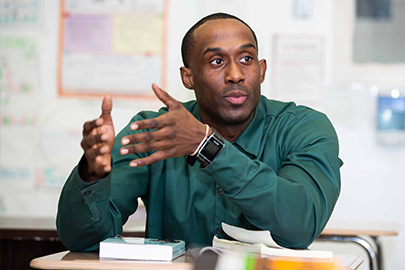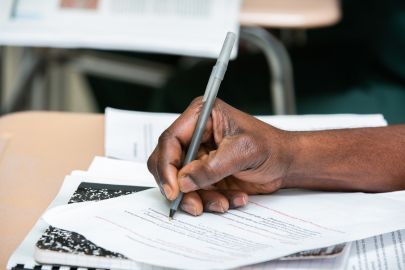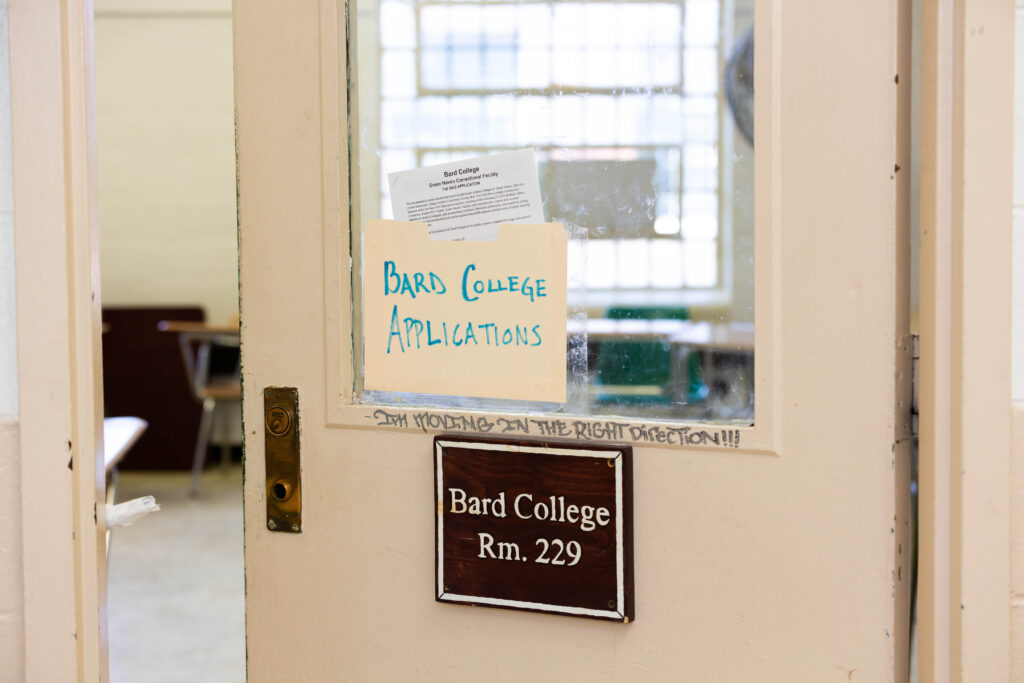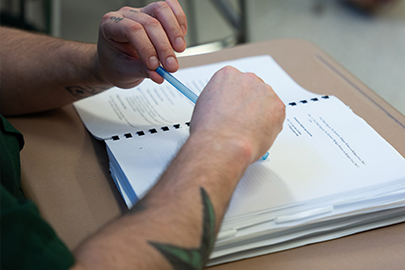NEW YORK — In between his busy football schedule, Philadelphia Eagles safety Malcolm Jenkins sat in a room with alumni of the Bard Prison Initiative (BPI), a program that allows men and women to work toward college degrees while incarcerated. He listened to the stories of the initiative’s alumni who proved that they would not let the prison system define who they were as human beings.
They walked in as inmates and left prison as college graduates determined to become productive members of society. Their stories are documented in a PBS series, College Behind Bars, airing on Nov. 25 and Nov. 26 at 9 p.m. ET.
On Tuesday, Jenkins greeted a sold-out crowd at the Apollo Theater in New York City for a special screening of College Behind Bars. As a social justice advocate and co-founder of the Players Coalition, an organization composed of NFL players designed to build support, challenge policies and bring awareness to issues that matter most in black communities, Jenkins threw his support behind the film.
The documentary, directed and produced by Lynn Novick and Sarah Botstein, follows more than a dozen incarcerated men and women over the course of four years and details the setbacks and triumphs faced on their journeys to become college graduates. Throughout the film, which bounces between six New York correctional facilities that support the BPI curriculum, men and women are shown studying subjects ranging from genetics to intermediate Chinese.
“We’ve been conditioned to have an image of what inmates look like when in reality, they are citizens like all of us. We just paint them in this narrative in order to punish them,” Jenkins said before the screening. “But now, I think it is time for us to be more restorative in a way that we deal with incarceration knowing that inevitably, the majority of these people are going to come back in this society.”
There are 51,000 men and 2,400 women incarcerated in New York state, according to the documentary. More than 900 inmates are seeking an education, and 300 are actively enrolled in BPI at a cost of $8,000 per student per year. About 600 alumni have been released from prison and fewer than 4% have gone back, Jenkins told the packed audience.



